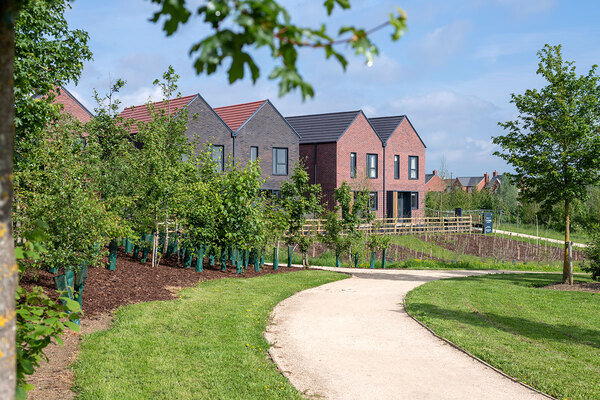You are viewing 1 of your 1 free articles
Housing estate demolition should be ‘discouraged’ to tackle carbon concerns
Demolition of housing estates should be discouraged and builders should be incentivised to retrofit as part of measures to cut carbon emissions, the chair of a London Assembly committee has said.

Writing in a new 33-page report, Sakina Sheikh, chair of the planning and regeneration committee at the London Assembly, said “urgent action” is needed to tackle both the climate change and housing crises.
She wrote: “A trend towards discouraging demolition could positively impact how we manage the quality of our historic housing estates going forward.
“This, in turn, could positively impact the capacity for communities to remain in their homes and to protect beloved historic community buildings, if they choose to.”
The issue of housing estate demolition has proved controversial, with a reported 161 sites in London bulldozed in the past 25 years.
Some critics have referred to the so-called regeneration of estates as “social cleansing”, as in some cases the number of social rent homes have been reduced on new developments.
The new report, entitled Retrofit vs Rebuild, comes amid the ongoing debate over the future of older buildings and whether they should be refurbished or knocked down.
In London, housing secretary Michael Gove has intervened over the future of Marks & Spencer (M&S)’s Marble Arch flagship store, where the retailer wants to demolish and rebuild the 1930s building.
In what is being regarded as a test-case, Mr Gove has rejected M&S’s plans. However, the retailer is fighting the decision in the High Court.
Ms Sheikh said the government can also make retrofitting more “financially viable” by listening to industry calls to cut the VAT builders have to pay to retrofit properties.
Her committee’s report also recommended that the government make it mandatory for all buildings to have a whole-life carbon (WLC) assessment to tackle the issue of embodied carbon.
The assessments measure all emissions from a buildings’s entire lifecycle, from its construction to its potential demolition or change of use.
The call echoes a recommendation made by a committee of MPs in May 2022. Currently, building regulations only cover operational carbon.
The government had vowed to launch a consultation on the issue in 2023, but has yet to do so, according to the committee’s report.
Elsewhere, the committee called on London mayor Sadiq Khan to publish annual data gathered from WLC assessments to “enable the success of the policy to be tracked, and to identify improvements needed”.
The group also urged Mr Khan and the government to launch a working group to identify the support that councils need to “promote whole life carbon and circular economy approaches”.
Ms Sheikh concluded: “The committee believes that the cross-party recommendations in this report can help London build the homes we need while meeting our aspiration of reaching net zero by 2030.
“The government and mayor must work together to achieve this.”
A spokesperson for the Mayor of London said: “The mayor is committed to promoting a sustainable approach to London’s built environment and paving the way for a net-zero city by 2030.
“The mayor’s London Plan requires the largest developments in London to show how they have calculated and minimised carbon emissions from construction and the use of a building over its lifetime, including its demolition and disposal.
“Sadiq has also introduced a new requirement for developers to set out how they will support reductions in waste and carbon emissions by adopting greener practices, such as re-using and refurbishing existing materials and structures. These policies mean that London’s buildings will be more sustainable now and for generations to come.”
Sign up for our asset management newsletter
Already have an account? Click here to manage your newsletters











